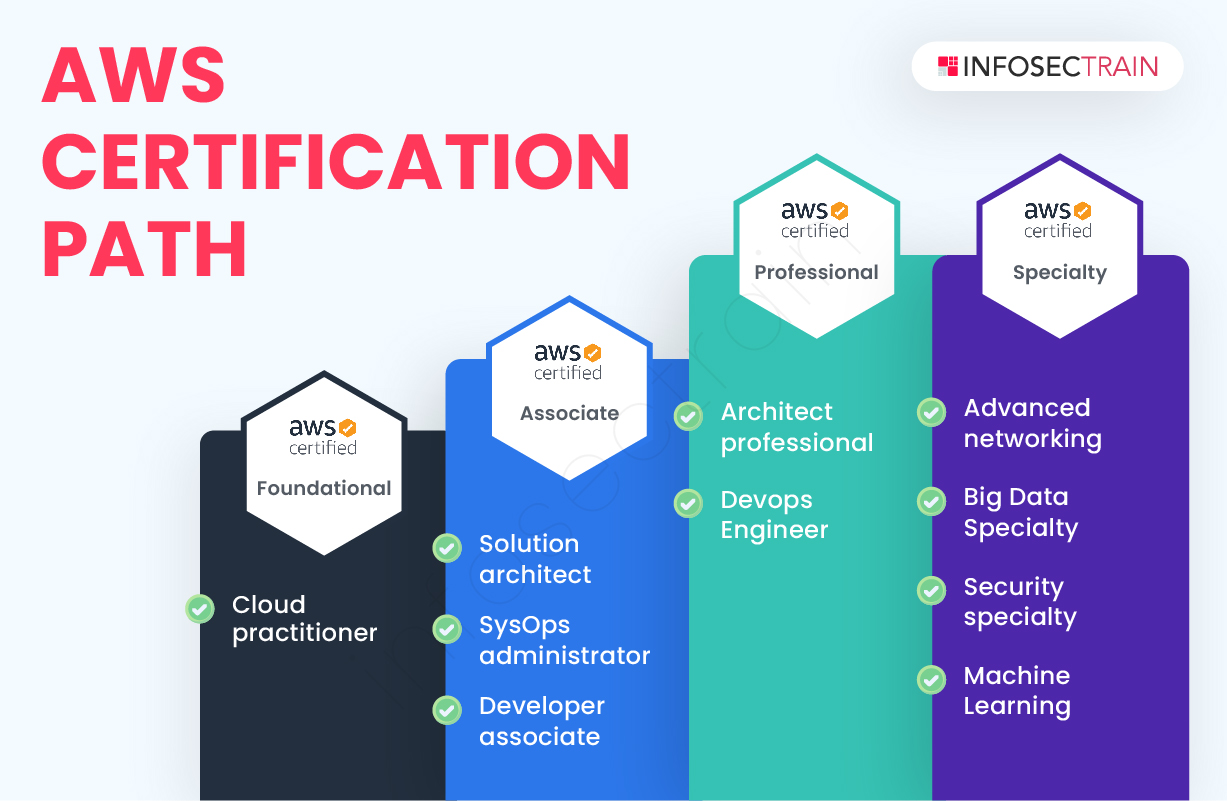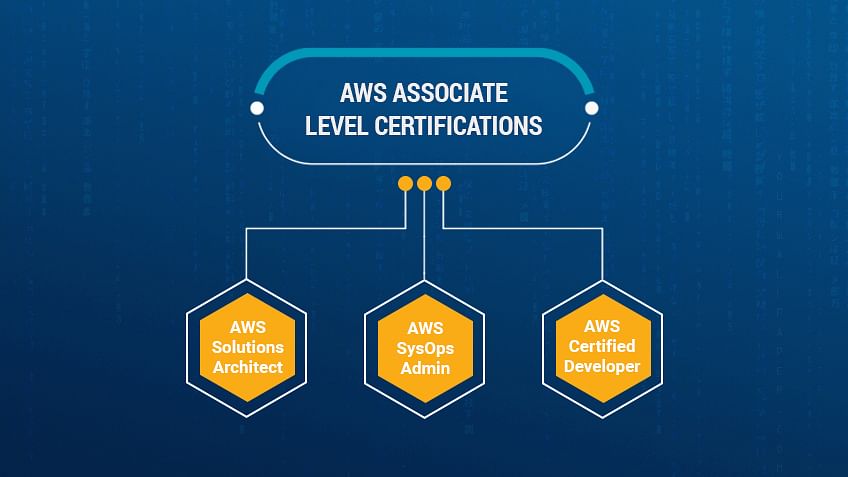Understanding AWS Certificates: An Overview
AWS certificates play a crucial role in securing and authenticating communication between AWS resources and applications. These certificates are essential for safeguarding sensitive data and ensuring the integrity of your AWS infrastructure. With various types of AWS certificates available, it is vital to select the appropriate one based on specific needs and use cases. This selection process should consider factors such as the size and nature of the business, the required level of security, and the specific AWS services being utilized.
How to Choose the Perfect AWS Certificate for Your Business
When selecting an AWS certificate, consider the unique needs and characteristics of your business. Factors such as the size and nature of the organization, the required level of security, and the specific AWS services being utilized should all be taken into account. Here are some popular AWS certificate options and their features to help guide your decision:
- AWS-issued SSL/TLS certificates: These certificates are ideal for securing communication between a client and a server or between AWS services. They are free and can be easily managed using AWS Certificate Manager.
- Public certificates: These certificates are used for securing communication between a client and a server, typically for internet-facing applications. They can be obtained from trusted certificate authorities (CAs) such as GlobalSign, DigiCert, or GeoTrust.
- Private certificates: These certificates are used for securing communication between services within a private network. They can be created and managed using AWS Private CA.
- Device certificates: These certificates are used for authenticating devices in IoT environments. They can be created and managed using AWS IoT Device Defender.
By carefully evaluating your business requirements and comparing the features of various AWS certificate options, you can make an informed decision and choose the perfect certificate for your needs.
The Role of SSL/TLS Certificates in AWS Environments
SSL/TLS certificates are essential for securing AWS environments and ensuring data protection. These certificates enable encrypted communication between a client and a server or between AWS services, safeguarding sensitive information from unauthorized access. By installing SSL/TLS certificates, you can improve website performance and enhance user trust.
To obtain an SSL/TLS certificate for your AWS environment, follow these steps:
- Select a trusted certificate authority (CA) to issue your certificate. Popular CAs include GlobalSign, DigiCert, and GeoTrust.
- Generate a certificate signing request (CSR) from your server or AWS service.
- Submit the CSR to the CA to request the certificate.
- Once the CA validates your request, download the certificate and any necessary intermediate certificates.
- Install the certificate on your server or AWS service.
By following these steps, you can ensure the secure transmission of data within your AWS environment, protecting both your business and user information.
AWS Certificate Manager: Simplifying Certificate Management
AWS Certificate Manager is a powerful service that simplifies the management, deployment, and renewal of SSL/TLS certificates. This service integrates seamlessly with various AWS services, streamlining the process of securing your AWS environment. By using AWS Certificate Manager, you can enjoy several benefits, including:
- Automatic renewal: AWS Certificate Manager automatically renews your SSL/TLS certificates before they expire, ensuring continuous protection for your AWS resources.
- Integration with AWS services: AWS Certificate Manager integrates with popular AWS services such as Elastic Load Balancing, Amazon CloudFront, and AWS API Gateway, enabling easy certificate deployment and management.
- Cost savings: AWS Certificate Manager eliminates the need for manual certificate management and renewal, reducing operational costs and minimizing the risk of human error.
By leveraging AWS Certificate Manager, businesses can ensure the secure transmission of data within their AWS environment, protect sensitive information, and maintain user trust.
Real-Life Applications: Success Stories Featuring AWS Certificates
AWS certificates have played a crucial role in enhancing security, streamlining management, and improving user experiences for businesses across various industries. Here are a few success stories that demonstrate the positive impact of effectively implementing AWS certificates:
- Global E-commerce Platform: By implementing SSL/TLS certificates, this e-commerce platform improved their website’s security and user trust. As a result, they experienced a 20% increase in user engagement and a 15% decrease in shopping cart abandonment rates.
- Healthcare Services Provider: This healthcare organization utilized AWS Certificate Manager to manage and deploy their SSL/TLS certificates, reducing operational costs and minimizing the risk of human error. They were able to ensure continuous protection for their AWS resources and maintain HIPAA compliance.
- Financial Services Firm: By implementing wildcard certificates, this financial services firm simplified their certificate management process and improved their ability to adapt to industry trends. As a result, they experienced a 10% increase in customer satisfaction and a 5% reduction in IT support requests related to security concerns.
These success stories illustrate the significant benefits that businesses can reap by effectively implementing AWS certificates. By sharing these experiences, we hope to inspire and guide other organizations in their journey towards enhanced security and optimal certificate management practices.
https://www.youtube.com/watch?v=GWL88ce5cnE
Staying Updated: AWS Certificate Best Practices and Industry Trends
To ensure the highest level of security and compliance for your business, it’s essential to stay updated on the latest best practices and industry trends in AWS certificate management. Here are some key areas to focus on:
- Adoption of HTTP/3: HTTP/3 is the latest version of the HTTP protocol, designed to improve website performance and security. By implementing HTTP/3 alongside SSL/TLS certificates, businesses can further enhance their website’s security and user experience.
- Use of wildcard certificates: Wildcard certificates simplify certificate management by securing multiple subdomains with a single certificate. This approach can save time, reduce costs, and minimize the risk of configuration errors.
- Continuous monitoring: Regularly monitoring your AWS certificates is crucial for maintaining security and compliance. By setting up alerts and notifications, you can ensure that you’re promptly informed about any certificate expirations, revocations, or other potential issues.
By staying informed about these best practices and industry trends, businesses can adapt their AWS certificate management strategies and ensure the highest level of protection for their users and data.
Navigating Common Challenges in AWS Certificate Implementation
Implementing AWS certificates can sometimes involve overcoming common challenges. Here are some issues you may encounter and practical solutions to help you navigate these obstacles:
- Compatibility issues: Ensure that your systems and applications support the AWS certificate types you plan to implement. If compatibility issues arise, consider updating your systems or seeking alternative certificate options.
- Configuration errors: Double-check your certificate configurations to avoid potential misconfigurations that could lead to security vulnerabilities or performance issues. Utilize AWS Certificate Manager or other certificate management tools to streamline the configuration process and minimize the risk of errors.
- Certificate revocation: If a certificate needs to be revoked, act promptly to minimize potential security risks. Familiarize yourself with the revocation process for each certificate type and ensure that you have a plan in place for handling revocations when necessary.
By understanding and addressing these common challenges, you can ensure a smooth AWS certificate implementation process and maintain the highest level of security and compliance for your business.
Maintaining Compliance and Security with AWS Certificates
AWS certificates play a critical role in maintaining compliance and security for businesses utilizing AWS services. By implementing the appropriate certificates, organizations can ensure the highest level of protection for their data and users. To maximize the benefits of AWS certificates, it’s essential to regularly review and update your certificate management practices.
Consider the following recommendations to maintain compliance and security with AWS certificates:
- Stay informed about the latest certificate requirements and best practices for your specific industry and use cases.
- Implement a regular audit process to ensure that all certificates are up-to-date, correctly configured, and properly deployed.
- Establish a certificate expiration notification system to avoid unexpected certificate expirations, which could lead to service disruptions or security vulnerabilities.
- Monitor your AWS environment for potential security threats and take prompt action to address any issues that arise.
By following these guidelines and maintaining a proactive approach to AWS certificate management, businesses can ensure the highest level of protection for their data, users, and overall security posture.






